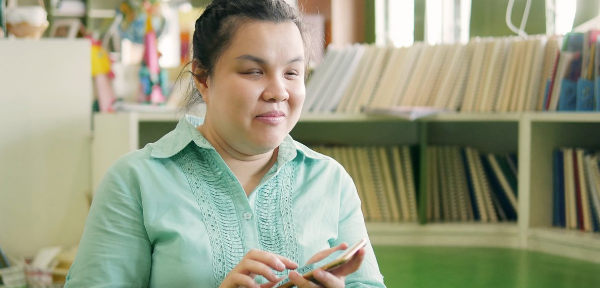Waymap App

Name of the practice: Waymap App
Organisation: Waymap
Description of the organisation: Waymap was founded in 2017 to offer navigation services for blind people following research by the Royal Society for Blind Children. Today, Waymap is the world’s only navigation app for smartphones that can guide people both indoors and outdoors. Through its app, they are able to locate a user to an accuracy of up to 1m in order to provide audio instructions for moving around, with no signal or physical installation required.
Country: London, United Kingdom
Year of initiation: 2018
Funding: Backed by both private and institutional investors
Link to UNCRPD: Article 9 - Accessibility, Article 20 – Personal Mobility
Description of practice:
Waymap is the world’s only navigation app for smartphones that can accurately guide people both indoors and outdoors. The app allows for the detection of the location of a user to an accuracy of up to 1 metre in order to provide audio instructions. The app requires no signal or need for physical infrastructure installed in the built environment. This level of accuracy is necessary for persons with vision impairments and persons with other disabilities to travel independently and with confidence. This infrastructure-free solution is also vital for scalability and reliability across rail networks and large cities. They can explore cities, use public transportation and navigate any indoor space that has been mapped.
Problem targeted:
Poor mobility is a cause of severe social exclusion and poor life outcomes, reducing access to employment and negatively affecting health and social life. 72% of vision impaired people who normally use paratransit (state funded taxis for people with disabilities) would prefer to use public transport services. However, practical personal navigation services for vision impaired persons are limited. Moreover, according to Guide Dogs UK, 35% of blind people in the UK never leave home without assistance from another person, and of those that do travel independently, approximately 50% limit themselves to 2 or 3 routes that they know well. This problem is set to become more apparent with an increase in both the average age of the population and the number of persons diagnosed with a disability. Poor mobility is a cause of severe social exclusion and poor life outcomes; reducing access to employment and negatively effecting health and social.
Solution offered:
Locating someone accurately indoors and outdoors has traditionally required dedicated infrastructure, devices such as Bluetooth Low-Energy Beacons and GPS systems. All, however, are affected by complex environments when occluded and reflected signals can interfere with distance calculations. Instead, Waymap’s technology for indoor location tracking enables the app to deliver the best guidance and user experience available on a smartphone. Its employment of the technique ‘dead reckoning’ allows it to combine sensor data available on smartphones and integrate it with map data to track real-time movement. Waymap removes the need for complex infrastructure which allows it to increase its operational resilience, reduce maintenance overheads and, perhaps most importantly, provide guidance for a user’s entire journey through multiple environments.
Impact generated by the practice:
In 2019, Waymap delivered an advanced wayfinding trial in Los Angeles, California which successfully demonstrated the efficacy of the system. 54 trialists were recruited from the local vision and cognitive impaired communities and asked to walk the routes. Following the trial, 85% of participants said that they would be confident using the system to find their way through a public place they were unfamiliar with. 94% said they felt confident using the system to find their way through the station. The trial also highlighted the potential for the technology to increase the use of public transportation by people with poor mobility. 96% of trial participants said that they would be more likely to use public transport on their own if Waymap was available. This technology aligns with the UNCRPD’s push for individual autonomy and will further enable persons with disabilities to fully enjoy all human rights and fundamental freedoms.
Sustainability of the practice:
Waymap has strong plans for expansions, with the app being deployed within a major US city later this year. Further growth prospects will look at rail networks across the globe, including within Europe and the United Kingdom. At the moment, Waymap has 3 paid trials in the UK with the rail network and aims to expand further over the next year, aiming for a ubiquitous presence across the UK.
Contact information: Ethan Brooks, Director of External Affairs: ethan.brooks@waymap.org
Additional links:

